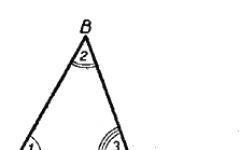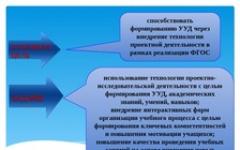§ 1. Types of connection in a phrase
We remember the past and take new steps on the path of knowledge.
Exercise
1. Explain on what basis the phrases are divided into three groups. Check for grouping errors.
School Olympiad,
first student
rhetoric lessons,
classical gymnasium,
entertaining linguistics.
Learn the paragraph
stand in front
get out from behind your desk,
computer science room,
elective in chemistry.
2. In words with unverifiable vowels, underline error-prone places. Choose the three most difficult words from your point of view and make sentences with them.
Collocation – This is a combination of two or more independent words related to each other grammatically and in meaning.
A phrase serves to name objects, their actions and characteristics more accurately than a word. Compare, for example, the word house and phrases wooden house, twelve-story house, my house, brick house and so on.
In a phrase, the main and dependent words are distinguished: error(which?) unnoticed, indicate(for what?) to the shortcomings, fled(How?) fast.
There are three types subordinating connection in the phrase: coordination, control, adjacency.
Coordination is a subordinating relationship in which the main and dependent words are in the same gender, number and case: spring sun, funny kitten, at this stop or only in number and case: first lessons, funny kittens, i.e. are consistent. As the form of the main word changes, the form of the dependent word also changes: spring sun, spring sun, oh spring sun.
Control is a subordinating relationship in which the main word controls the case form of the dependent word: decide(What?) task, be interested(how?) art. As the form of the main word changes, the dependent word retains its form: interested in art, interested in art, interested in art.
Adjunction is a type of subordinating connection in which a dependent unchangeable word (adverb, gerund, indefinite form of a verb) is associated with the main one only in meaning, adjoins it : read aloud, soft-boiled egg, said smiling, forgot to call.
1) combination of predicate and subject: it's raining, the quarter ends;
2) homogeneous members offers: newspapers and magazines; lights up but doesn't heat up;
3) a noun (or a word replacing it) with a preposition: near the house, during the year, near it;
4) complex shapes future tense and comparative degree: I will study, you will train, deeper, the best;
5) idioms: put a spoke in the wheels, drive a quitter, rolling up my sleeves.
To make it easier for you to recognize the types of connections in a phrase, we will compose a self-instruction.
Self-instruction
Types of connection in a phrase
| 1. Determine whether the dependent word is an unchangeable part of speech | ||
| Yes | No | |
| Determining whether the dependent word is in case form | 2. Determine whether the dependent word changes when the main word changes | |
| Yes | Yes | No |
| Conclusion: control | Conclusion: coordination | Conclusion: control |
| No | ||
| Conclusion: adjacency | ||
Exercise
What type of connection are words connected in a phrase if only one attribute is known? Keep in mind: in two cases the problem has more than one solution.
1) The main and dependent word play the Estonian game “Do as I do”; 2) the dependent word is expressed by an adverb; 3) there is a preposition between the main and dependent words; 4) the main word, like a traffic controller at an intersection, controls the movement of traffic; 5) the main word is a verb.
Exercise
1. Write down the phrases, grouping them by type of subordinating connection and highlighting the spelling.
Desperate act, answered irritably, in a bubbling stream, breathing heavily, hide the letter, in the flow of the river, get a new haircut, according to a new textbook, evening program, program work, subsequently decide, as a result of a rash decision, chained to a rock, to compromise, an uncompromising man, having decided to take an action, spoke pompously, overcoming an obstacle, a growing organism spreading over the river, red-hot.
2. Dictation. Prepare to take dictation of these phrases.
Exercise
Fill the table.
1. Depending on what part of speech the main word is expressed, phrases are divided into nominal, verbal and adverbial.
IN registered in phrases, the main word is expressed by a noun ( warm day, desire to learn), adjective ( very inquisitive, pale with fear) or numeral ( three comrades, two upstairs). TO verbal include phrases with verbs, participles and gerunds as the main word ( reading a book, flushed with embarrassment, remembering the past). This is the largest group among phrases. U adverbial phrases the main word is an adverb ( very fun, just before departure).
2. Except free phrases, they also highlight whole phrases: five books, most of the students, one of us, my mother and I, a girl with blue eyes and so on.
Whole phrases appear in a sentence as one member of the sentence: Seryozha (after all, you can’t say “ was silent for five"). Keep this in mind when parsing sentence by member.
Exercise
1. Write down only complete phrases. Indicate which of them have a quantity value ( three friends ), selectivity ( one of us ), compatibility ( Tamara and I ), portrait detail ( boy with bright red hair
).
For other phrases, name the type based on the main word (noun, verb or adverb).
Thirty-eight parrots, many cars, having met a friend, Ivanov and Petrov, who could not hold back his tears, three fat men, apples and pears, girls with laughing faces, a long-known, short man, each of the employees, subscribe to the magazine, mom and dad, what - from things, spoons and forks, saving a child, my friend and I, a baby with brown eyes, a meeting alone, twenty-two students. 2. Make up sentences with 3-4 complete phrases. Indicate which part of the sentence they act as. Have you ever wondered why intentions come true, A Dreams Come True ? Why is someone allowed delight infuriate, enrage or despondent
, but not at all lead to rejoicing? A few more examples. A person who speaks his native language since childhood will never call health heavy, and the disease is strong; will not confuse the speed lose patience And lose calm. In all these cases, we take into account the features lexical compatibility of words, i.e. their ability to connect with each other. Many errors in our speech are explained by violations of the rules of lexical compatibility.),For example: Brown hair (or eyes terribly beautiful(or terribly beautiful). Really funny combinations? (They say)
Exercise
Brown eyes
And
brown hair, very nice or.
Exercise
extraordinarily beautiful. 1. In these phrases, the norms of lexical compatibility of words are violated. Write down the phrases, correcting the mistakes. Cheap prices, take action, earned fame, unremitting help, does not matter, sudden departure, increase level, provide care.
Exercise
1. Before you are two groups of words: in the first - words that are main in the phrase, in the second - dependent. Connect the words into phrases.
1) Bag, tile, bundle, tube, pack, bundle, jar, stick, pinch, handful.
2) Jam, nuts, milk, chocolate, firewood, yeast, cookies, carrots, toothpaste, salt.
2. What common meaning are all these phrases united by?
Exercise
1. Type the following phrases on your computer keyboard.
Worry about the child, confidence in the future, come from Moscow, the head of the hospital, a monument to Pushkin, distinguish letters and sounds, after graduating from school, feedback on an essay, pay attention to physics, pay for travel, be surprised by behavior, worry about relatives, point out shortcomings , honor with an award.
2. Which phrases were underlined on the screen green? What does this mean? Read the commentary on these examples given in the Grammar Explanation dialog box. Did the “Spelling” program (section “Grammar”) correct all the errors? Draw a conclusion about whether you can rely on everything
computer programs
Exercise
Spelling and grammar checks. 3. Write down all phrases correctly, in accordance with the norms of the literary language. 1. Verbs that are similar in meaning often require different cases from nouns, for example: distinguish(what and what?) sounds and letters, But: differ(what from what?)
letter sounds
. Combine the words into phrases, putting the dependent word in the correct form. Indicate the case of the noun. 1) Warn, warn (danger); 2) to be surprised, amazed (action); 3) focus attention, pay attention (the main thing); 4) superiority, advantage (enemy); 5) be defeated, lose (champion); 6) pay, pay for (travel); 7) rely, be based (results); 8) commander, commander (regiment); 9) reprimand, reproach (bad faith); 10) despise, neglect (danger). 2. In words with prefixes before
- And
pre
- highlight error-prone areas.
§ 2. Syntactic analysis of the phrase
The order of parsing the phrase
1. Select a phrase from a sentence.
2. Find the main and dependent word; indicate which parts of speech they are expressed by; draw up a diagram of the structure of the phrase.
3. Name the type of phrase based on the main word (verb, noun, adverb).
1) 4. Determine the type of subordinate connection (coordination, control, adjacency).– adj. + noun, nominal, acc.;
2) Tatyana dreams- verb + noun, verb, ex.
Exercise
1. Read the sentence.
The night is frosty, the whole sky is clear;
A wondrous choir of heavenly luminaries
It flows so quietly, so accordingly... ( A. Pushkin)
Have you seen this picture on your mental screen?
2. In what meaning is the word used? choir? Choose synonyms for the adjective.
marvelous
Exercise
3. Highlight the grammatical bases in the sentence, then do a syntactic analysis of all phrases. In class they did parsing
phrases. Check if there are any errors in the following work.
Round dances of stars intertwined in wonderful patterns in the distant sky. (M. Lermontov)
Round dances of the stars - noun. + noun, nominal, acc.; wonderful patterns
– adj. + noun, nominal, acc.; intertwined in the sky -
verb + noun, verb, ex.; intertwined patterns
Exercise
- verb + adv., approx.
1. Read an excerpt from the novel by A.S. Pushkin “Eugene Onegin”. Let your imagination do the work.
It was evening. The sky was darkening. Water
They flowed quietly. The beetle was buzzing.
The round dances were already breaking up;
Already across the river, smoking, was burning
Fishing fire. In a clean field,
Moon in silver light
Immersed in my dreams,
Tatyana walked alone for a long time.
2. Write down three phrases with different types of connection. Parse any two phrases. 3. In what meaning is the word used? round dances?
Exercise
And what is the meaning of this same word for M. Lermontov (see previous task)? 1. Write down the phrases, opening the brackets and distributing them into different groups
phrases by type of communication. For phrases with an agreement relationship, indicate how the main and dependent words agree.
In the winter silver, waking up early, in the morning, smelling the snow, a brown filly, softly carpeted, cheerful crackling, shining in the sun , an (im)patient horse, fluffy reins, trudges along at a trot, like a smooth carpet, (to) meet the northern Aurora.
2. In which Pushkin lines do these phrases occur? Try to remember the titles of the works and the lines themselves.
3. In what phrase has the norm of management changed compared to Pushkin’s time?
Exercise
1.4. What is the name of a stylistic device in which the usual word order is violated in a phrase or sentence? Give examples. Remembering spelling
1) Winter.. jacket, curly.. greenery, early.. spring, former... girlfriend, in the awakened.. forest, about the fluttering.. flames, in the late.. night, about drizzling.. rain, never melting .. snow...
2) Wrote on the cover.. notebook.., to attend the opening.. exhibition.., drove up to the tower.. fortress.., approached the porch of the gatehouse.., a letter from Astrakhan.. for Natal..
3) (By) spring sky, they are chirping (like) spring, you are worried (as) before, (on) the same path, a hot (like) summer day is blowing...
4) Short-haired, short-haired boy, baked potatoes, baked in ash, paved with tiles, paved streets...
2. Determine which words in the phrases from the fourth row are main and which are dependent; indicate the types of communication. Make sentences using participial phrases.
3. Based on this task, draw a conclusion about what spelling and punctuation rules are associated with the ability to isolate phrases from a sentence.
§ 3. Collocation and forecast
The ability to look ahead is a wonderful human quality. You know what to denote this amazing ability created whole line words: foresight, anticipation, foresight, premonition, forecasting etc. But most often we use the word forecast(remember the expression weather forecast). So, reading a sentence that begins with the word those, we foresee what will soon follow which. Hearing the words for that , we expect to . Similar those, for, there, when give us the opportunity to anticipate, to some extent, both the thought and the syntactic construction expressing this thought. Seeing the first words in a sentence
When the boys, having left... , we immediately guess that when the boys, having given up one thing, took up something else, something third happened. In some cases, based on the words you have already read, you can accurately predict the next ones. Even small children, having heard Pushkin’s unfinished lines: “Nature waited, waited for winter.
The snow only fell…”, they finish unmistakably: “in January”. But most often we predict the forms of words and syntactic constructions . Let's look at how prediction works when a phrase is created. To do this, let's analyze several examples. Let's take a phrase with a connection coordination. If there's a word in it green , then it will definitely predict that there will be a main word expressed by a noun in the form nominative case , singular, feminine, for example: green lamp, or sweater, we immediately guess that a noun in the genitive or accusative case will appear somewhere nearby plural: wings green butterflies nominative case birds…
If the main word is denoted by a Latin letter A, and the dependent – by the letter IN, their relationship can be represented by the formula A<- В, that is the dependent word predicts the main word(of course, if it comes first in the phrase). Does the main word predict the dependent word? Of course not. Because the main word does not necessarily have a dependent word that characterizes it. This means that in connection with agreement, the dependent word predicts the main thing, but not vice versa.
Now let's look at the syntactic relationship control. Here the dependent word always predicts the main thing, and the main thing always predicts the dependent word. Let's check it out. Transitive verb Here the dependent word always predicts the main thing, and the main thing always predicts the dependent word. Let's check it out. I'm reading requires that it be accompanied by a noun (or pronoun-noun) in the accusative case:(What?) book, letter...In the same way, after hearing or reading a word Here the dependent word always predicts the main thing, and the main thing always predicts the dependent word. Let's check it out. green book green , we are waiting for the verb give will buy etc. In other words, there cannot be a servant without a master, and a master without a servant: the dependent word predicts the main word, and vice versa. True, in a specific proposal the forecast does not always come true. So, with the verb the dependent word predicts the main word, and vice versa play There can be a variety of dependent words:(on what?) piano, play ( with whom?) with brother, play(what?)
play chess etc. We do not know which of these connections, dependencies, are implemented in a particular sentence. The same relationships exist between the main and dependent words in phrases with the connection adjacency.. Let's take the verb read Read is it possible (how?)
ok, fluently, out loud
etc. An adverb denotes a sign of an action, so we almost always expect a verb to appear next to the adverb that denotes this action. However, in a particular proposal, this expectation may not come true. The dependent word may either not appear at all, or there may be only one of several predicted ones.
Exercise
Now, based on the observations made, let's create a table. Let's try our hand at forecasting.
It is known that the dependent word in a phrase is one of the following words:
brick, school, neatly, last, hastily, hours, about the film, professional. Try to predict the main word. Determine the types of connections in phrases.
Exercise
Predict the meaning and type of connection in the phrase if it contains one of the following words.
1) Flatly, 2) implement, 3) notorious, 4) unquestioningly, 5) judge.
Exercise
“Collect” a sentence from “scattered” words. Keep in mind: this task also involves forecasting.
Let's “put together” a sentence that has “scattered” into the following word forms: fragrant, early, on, white, just, in the morning, garden, gently, blossoming, all, summer, rose.
Let's do this work together first.
Fragrant is a verb in the past tense, singular, feminine form. In a sentence, it must be a predicate and connected with the subject - a feminine noun, singular, nominative case. There is such a noun - rose. The result is a grammatical basis - the rose smelled fragrant. The next word is early. This is an adjective in the instrumental case, singular, masculine or neuter. It predicts that the sentence must contain a noun with the same grammatical features. We find him - in the morning. The adjective also belongs to the same noun summer. It turned out to be a complex phrase…
Exercise
early summer morning
The sentence is written in a column, one word at a time. Gradually moving the “engine” (a sheet of blank paper or a ruler), express your assumptions about the further content and structure of the sentence, as well as about the placement of punctuation marks.
cutesy
on the stove
sitting... cutesy – an adjective in the nominative singular masculine form is a dependent word in a phrase; I'm waiting for the main word with the same grammatical features. This word cat, it turned out to be a phrase cutesy cat . I'm waiting for the predicate. On the stove – prepositional case form, which must be associated with a predicate verb or gerund. Sitting cutesy– gerund, together with a dependent word forms a phrase sitting on the stove
, it turned out to be an adverbial phrase; if there are no further dependent words, then it must be highlighted on both sides with commas...
Purring
paw
stigma
Exercise
(A. Pushkin)
Exercise
Write down the following sentences step by step, predicting their further content, structure and punctuation. (Proceeding in the same way as in the previous task, write down...)
Perochinny..., walnut..., broad..., brown..., pitch-black..., branched..., snub..., leap..., exclusive*..., torrential..., callous....
2. In what cases does a problem have a single solution, and in what cases does it have two or even three?
Exercise
1. Nouns and adjectives are given mixed. Construct phrases from them, focusing not only on the grammatical forms of the words, but also on the meaning.
Final, friendship, hopeless, joy, strong, fun, unbridled, need, suffering, unbearable, influence, endless, stormy, victory, beneficial, pity, immeasurable, health, immeasurable, sleep.
2. What common meaning are these phrases united by?
3. Find words with prefixes of the second group, i.e. on -з(-с) , label them.
ON THE. BORISENKO,
Korolev
Plan for parsing the phrase:
- Select a phrase from a sentence.
- Find the main and dependent words, indicate by what parts of speech they are expressed, pose a question from the main word to the dependent.
- Determine the type of phrase (verb, noun or adverb).
- Determine the method of subordinating connection (coordination, control, adjacency) and indicate how it is expressed (the ending of a dependent word, ending and preposition, only in meaning).
The type of connection can be determined by the question:
Which? whose? (except for the unchangeable possessive places. his, her, their) – But most often we predict the forms of words and;
case questions of indirect cases: whom? what? to whom? what? whom? What? by whom? how? about whom? about what? (in phrases there may be various prepositions, which are a formal sign of management) – control;
Where? Where? When? where? Why? For what? How? — adjacency.
- Determine the semantic relationships between the main and dependent words (attributive, objective, adverbial).
Example:
The icy wind sharply tore the hems of his overcoat (L. Tolstoy).
| Which? — ↓──────× chilly wind —- ↓ ↓ adj. + noun |
Noun phrase. The method of communication is agreement, expressed by the ending of a dependent adjective. Determinative relationships: the object and its attribute are indicated. |
| How? ↓─────× vomited sharply —- ↓ ↓ adv. + verb |
Verb phrase. The method of communication is adjacency, words are connected in meaning and intonation. Circumstantial relations: the action and its sign are called. |
| What? ×────↓ tore up the floors ↓ ↓ Ch. + noun in wine P. |
Verb phrase. The phrase names an action and an object, an object relationship. |
| which? ×────↓ coat tails ↓ ↓ noun + noun in genus P. |
The phrase is a noun phrase because the main word is a noun. The method of communication is control, expressed by the ending of a dependent noun. The phrase names the object and its attribute, the relations are determinative. |
Collocation- is a combination of two (or more) independent words interconnected by a subordinating relationship in meaning and grammatically: read a book, warm day.
Phrases name objects, actions, signs, etc., but more precisely, more specifically than words: read - read aloud, pen - ballpoint pen, quickly - very quickly.
A phrase consists of a main word and a dependent word.
A word that names an object, sign, action, etc. is called main.
A word that explains, disseminates the main thing is called dependent.
From the main word to the dependent one you can Ask a Question.
When parsing a phrase, the main word is usually noted cross.
The following combinations of words are not phrases:
1. Combination of subject and predicate since this sentence: The shop is closed; The day is hot; The train is arriving.
2. A number of homogeneous members of the sentence, since they are connected by a coordinating connection (i.e., they have equal rights): books, newspapers, magazines; light but warm; either rain or snow.
3. Combination of a function word with a significant word, since this is a word form: near the house (near- preposition), also came ( Same- union), as if in a dream ( as if- particle) .
4. Compound forms of words: I will study, more interesting, the smartest.
5. Phraseological phrases, since the words in them lose their lexical meaning, they can be replaced with one synonymous word: kick your ass(= to mess around) , lead by the nose(= to deceive) .
The words in the phrase are related in meaning and grammatically:
Semantic connection words in a phrase established by issues, which are placed from the main word to the dependent:
×——————-↓ ×—————-↓ ×———————-↓
path(which?) forest, run(Where?) home, think(about what?) about the exam.
Grammatical connection words in a phrase is expressed using the ending delight endings and prepositions:
—
×——————↓ ×———————↓
working her
(which?) place, tell(about what?) O
trip e
.
Types of phrases
A. Depending on what part of speech the main word is expressed, phrases are divided into three groups:
- Personalized phrases are those in which the main word is expressed:
noun: May day, broken vase, seventh house, our yard, drops rain, wish understand, riding on horseback;
adjective: useful children, interesting for me, absolutely unknown, capable forgive;
numeral: three comrade, five from U.S;
pronoun: anything important, something incredible, some of them.
- Verbal
verb: go out outside, speak the truth multiply five, loud laugh, go bouncing;
participle: reported relatives, arrived to the pier, conversationalist with friends, loud speaking;
participle: reading newspaper, being careful colds, asking help, offering return.
- By adverbs are called phrases in which the main word is expressed
adverb: very successfully, still Interesting, left from the house, shortly before dawn, somewhere in the courtyard.
B. Based on the nature of semantic relations, three groups of phrases are distinguished (by analogy with the secondary members of a sentence):
- Definitive phrases mean object and its sign:deep river, cheerful mood, forest flowers.
- Object phrases indicate action and subject, to which it goes: sweeping the floor, writing a note, digging a well, putting it on the table, reading a book.
- Circumstantial phrases indicate action and its sign:sleep well, speak quietly, jump high.
B. Based on the number of components, two groups of phrases are distinguished:
- Simple phrases consist of two significant words: play sports, new student, look at photographs.
- Complex phrases consist of three or more significant words and are formed as a result of the spread of a word by a whole phrase or the spread of a phrase by another word: doing homework(word performance common by the phrase homework),new monthly magazine(phrase monthly magazine spread by word new);read a book - read an interesting book - read a very interesting book - read a very interesting book for a long time.
D. According to the degree of cohesion of components:
- Syntactically free phrases- the result of the free combination of two independent words, each of which has a full lexical meaning. In such phrases, the main word is the main word both grammatically and in meaning, and the dependent clarifies the meaning of the main word in one way or another. Each of the components of a free phrase in a sentence is a separate member of the sentence. Free phrases can easily be broken down into their component parts: test, math problem book, work around the clock.
- Syntactically non-free (whole) phrases- this is a combination of words in which the grammatically dependent word is the main word in meaning, and the grammatically main word is insufficient from the point of view of semantics (information). Syntactically non-free phrases are not decomposed into their component parts. In a sentence, syntactically integral phrases are one member of the sentence: two houses, several students, little time.
Models non-free (solid) phrases:
- Quantitative noun phrases. In them, the main word denotes quantity (number, volume, size), but has no objective meaning, and the dependent word is a word with an objective meaning in the genitive case: three pencils, two guys, so many people, many cars, many books.
- Phrases with the meaning of selectivity.
In them, the main word is a pronoun or numeral, the dependent word is a noun or pronoun in the genitive case with the preposition “from”: one of us, each of those present, some of the students, some of the guys. - Phrases with metaphorical meaning. The main word is used in a figurative sense and names what the object looks like, the dependent word is the direct name of the object: sickle of the month, cap of curls, river mirror, flame of lips (S. Yesenin), copper leaves (S. Yesenin), rowan bonfire (S. Yesenin).
- Phrases with the meaning of uncertainty. The main word is an indefinite pronoun, the dependent word is a consonant adjective, participle: something unpleasant, someone unfamiliar, someone sitting.
- Phrases with the meaning of compatibility. Such phrases call equal participants in a joint action. The main word is a noun or pronoun in the nominative case, the dependent word is a noun in the instrumental case with the preposition “with”: brother and sister, Kolya and his friend, my friend and I. Word combinations built according to this model are integral only as subject and only if if the predicate is plural:mother and daughter were preparing lunch; Nikolai and Denis went to the forest.If the subject is singular, the phrase is free:father and son went to the zoo (subject - father,with son - addition) .
- Contextually integral phrases. Their integrity arises only in the context of a sentence or complex phrase: clever man will be able to figure it out; girl with blue eyes , tall man .
- Collocations in compound predicates, including auxiliary verbs, linking verbs or other auxiliary components: He started telling about adventures in the Amazon jungle; We we want to you help; She looked tired.
Which does communicative function(enters into speech) only as part of a sentence.
It is generally accepted that phrases include combinations of significant (having independent semantic meaning) words based on a subordinating connection (connection of the main and dependent members). Some researchers also recognize a broad understanding of the phrase: essay phrases - combinations of homogeneous members of a sentence, as well as predicative phrases - subject and predicate.
Types of connections between words in a phrase
Classification of phrases by main word
Classification of phrases according to the degree of fusion of components
According to the degree of fusion of components, the following phrases are distinguished:
- syntactically free
Example: tall house.
- syntactically (or phraseologically) not free, forming an indecomposable syntactic unity and acting in the sentence as one member:
Examples: three sisters, pansies.
Are not phrases
In the narrow sense accepted in most textbooks and academic grammar, phrases do not include those combinations in which the connection is not subordinate, one of the words is not significant, or the connection occurs only in a certain position in a sentence in a certain form, for example:
- Subject and predicate (predicative basis of the sentence), e.g. It is raining.
- The passive or impersonal form of the verb with the subject in the instrumental case. For example, proposed by scientists
- A combination of homogeneous members of a sentence, for example, fast and dexterous
- Forms of the future tense, imperative mood, degree of comparison, for example, Will work, larger
- A combination of a word and a separate member of a sentence related to it, for example, I'm walking, accelerating
- A combination of a function and a significant word, for example, a noun with a preposition: before bedtime
- Combinations of verbs in the same form
- phraseological units, for example, neither fish nor fowl
A phrase is a combination of two or more independent (significant) words related to each other in meaning and grammatically. For example: white birch trees, prepare for classes, a more difficult task, completed it on time, etc. A phrase consists of a main and a dependent component, between which there are subordinate relationships. Sometimes phrases also include compounds of syntactically equal words connected by coordinating relationships (brother and sister; handsome, but dear), as well as combinations of subject and predicate in a sentence. The semantic connection of words in phrases is established by questions that are asked from the main word to the dependent one. The following basic meanings can be expressed in phrases: - attributive: between an object and its attribute (sunny day, checkered notebook, soft-boiled eggs); - objective: between the action and the object to which it is directed (strive for knowledge, defend the Motherland); between the action and the instrument of action (knocking with a hammer), etc.; - adverbial: between an action and a place, time, reason for an action or manifestation of a sign (leaving the city, returning late, being absent due to illness, dressed fashionably). Which phrase expresses attributive relations? a) heart-to-heart talk b) come talk c) close to us d) run the theater Which phrase expresses adverbial relationships? a) soft-boiled eggs b) return by midnight c) ordered to retreat d) graduation Which phrase expresses object relations (action and object to which the action is directed)? a) draw beautifully b) desire to leave c) walk along the boulevard d) think about a friend Agreement is a type of subordinating connection in which the dependent word is placed in the same forms as the main word (i.e., it agrees with the main word in gender , number and case or in number and case). For example: deep river, deep pond, deep lake, deep lake, deep river, deep rivers and lakes, deep lakes, etc. When coordinated with the change in the form of the main word, the forms of the dependent word change accordingly. Control is a type of subordinating connection in which the dependent word is placed with the main word in a certain case, regardless of what form the main word is in. For example: read a book; read, read, read, read, read, reading, reading a book. When controlling with a change in the form of the main word, the dependent word does not change (remains in the same case). Adjunction is a type of subordinating connection in which the role of the dependent word is played by unchangeable words: adverbs, gerunds, the indefinite form of the verb (infinitive) and the possessive pronouns his, her, their. In a phrase with the connection adjacency, the dependent, unchangeable word is connected to the main word only in meaning. For example: to depict truthfully, to depict truthfully; gloomy like autumn, gloomy like autumn; was going to do, are going to do; his house, his house. In which phrase is the type of connection - agreement? a) our bosses b) get there quickly c) horseback ride d) peeked out from behind the clouds In which phrase is the type of communication - management? a) a little strange b) forgot to tell c) melt in the darkness d) shirt untucked In which phrase is the type of connection - adjacency? a) milk bottle b) speak French c) chapter thirteen d) look around Which phrase is built on the model “adj. + "? a) climbing plants b) any person c) amazingly beautiful d) in the third grade Which phrase is built according to the “+ adverb” model? a) go for a walk b) do it by accident c) left without saying goodbye d) running out to meet you Which phrase is built according to the “+ adverb” model? a) extremely dissatisfied b) practically impossible c) whispered sadly d) (on the street) spring-like warmth High culture of spoken and written speech, good knowledge and development of a sense of language, the ability to use its expressive means, its stylistic diversity - the best support , the surest help and the most reliable recommendation for every person in his social life and creative activity (V. Vinogradov).







